The merit of Awards is a terrifically fraught and controversial subject, which I still find weird given that we’re essentially talking about giving public praise and trophies for doing good work. It would seem that awards should be nothing but roses, but it’s a subject that goes much deeper, to the core of art’s value and how our industry works. Challenging the presumed benefit of it all can be met with swift and often angry retorts. This is, to be honest, not my first time trying to tackle this subject in an article. Hopefully I’ll get the balance right this go round, and hopefully as well dissenters can read this int eh spirit it was delivered and offer thoughtful counterpoints should they have them. Art is made better by our differences, not marching in line.
This article is not an attempt to denigrate, smear or attack awards in anyway. What I want to do here today is have a frank discussion about what awards mean, how they are given, what they don’t mean, and how they impact our industry… so you can have a clear idea of what you’re getting into when you chase them, see them as validators, and participate in the giving of them to artists and creatives.
It’s no secret that I am not a fan of art trophies. I don’t think they belong in art not because I don’t think artists should be recognized for their exceptional work, or that everyone deserves to be a winner, or some pollyannaish idea that there should be no competition in our world. Simply put, I think they are a sports thing and art is not a sport. Trophies are prizes given to people who win races, score the most points and win the game. This is not what we do, and injecting this sports ethic into art forces artists to suddenly codify and reduce their work into simplistic sports terms…”winners” and “losers” in a race that doesn’t actually exist, except for the one forced upon us by the prize themselves.
The hunt for trophies can warp how we make work, twist why we make the work and I think is ultimately reductive to the community of shared work and peers. That’s my opinion, but I don’t come to it lightly or naively. I think there are simple solutions to this problem, but I don’t think we’ll ever enact them because the race for shiny awards is too great and demanding. It’s a bit like dangling the idea of the American dream to poor kids in bad neighborhoods: sure there is possibility to achieving great success in this race, but not really very likely for you. Sorry kid. Awards are a lot more democratic than that of course. Rotating juries and mixed and blind voting techniques go a long way to stifle corruption and favoritism in the field for the most part. I can say that the process I experienced at Spectrum and the Society of Illustrators was fun and the absolute cleanest and clearest system of giving awards I have seen. But I also saw that this can only be true up to a point, because in the end despite the worlds of differences between the work that should normally render a side-by-side competition ridiculous, we still force ourselves into having to choose ONE winner over all. And largely that final push is where the most acrimony comes into play (if there is to be any), and horse trading in order to keep things from spiraling out of control. The physics of the trophy system itself is the problem, not the receivers, judges, or organizations that gift them. Once again, Art is not a sport, it is not a race. There is a competitive aspect to it in the professional world and that’s not a bad thing, but not all competitions are the same, and treating them as such can be toxic to others. Namely all of us who make art.
To kick things off, awards by their very definition mean you’ve done well and good work. Period. That’s the core impetus of them, thats what they mean when you look at them: a group of considered people, largely professional peers in your field think you did great work. Don’t ever forget that. There’s a reason the trophies are meant to be shiny and beautiful ( except in the case of the Ignatz which is brilliantly, a brick- but I still think that’s beautiful). They are prizes, shiny and beaming, meant as an icon of success. They don’t give out trophies for failing so all of this is of course, a given. The overriding spirit of awards in the arts is by every base intention meant as praise and should be taken as such. They are a special congratulation given by your peers and colleagues. But like everything they are also more complicated than that. That does not mean that they aren’t valuable or that you should not value them, but only a call to not be naive about what they truly are, or what they really mean.
I myself have received a few of them, and have been on juries to bestow a few of them. But I personally have a rather uncomfortable relationship with art awards. Some of it certainly is my own neurosis about praise but the difficult attitude also comes from some legitimate concerns about their place in art corner from both he receiving end and from the experiences of the giving end. Creatively and purely as an artist, they make me wince. Generally speaking, I am skeptical of praise because I am a bit of a nut, but also because that kind of praise brings blindness with it. For me art thrives in skepticism and awards are anything but skeptical acts. When an award tells me something is awesome, it tends to make me stop pondering if it is working. Or rather, it robs me of the internal searching for quality, and implies that I have to make the next piece better by bringing upon the piece a level of judgement that negates that essential searching.
If you take a bit of a sandwich and don’t like it, but its an award winning sandwich that everyone seems to love…. suddenly you are in a position to doubt your own taste. You are then forced to stand agains the crowd of approval despite your concerns. You must now defend anything that doesn’t sing the song of the group. I have a base and irrational repulsion of group-think. Awards are definitionally group-think, even if its a small group thinking it, and thus the ambivalence on my part.
Thinking about art in sports terms is to me antithetical to what art is and should be. This “Highlander Principle”, that requires there to be only one winner at the end. Again, this is a sports thing, not an art thing. Awards and the race to win them pits peers and artists into a forced sense of competition that is not inherently true or present except in the areas of the awards themselves. The dynamic forces us to haggle and negotiate as judges in a way that becomes more about fulfilling the demand of the Highlander Principle’s physics than it is a celebration of the art pieces themselves. It creates a circumstance of negotiating and horse-trading that has to be brought in in order to get the group- even if its only a party of five or six- to negotiate a first second and third prize. The process suddenly becomes tricky to support the trophy and become less about the work, or the reality that no single piece represents the best of anything where a group of the best might serve better. I don’t think this is the fault of the jurors, but of the pyramid like requirements of the competition that demand a single winner. To me that’s where the sports ethic collides with art in an unhealthy way. Art is a subjective exercise. A personal sphere. There’s nothing inherently wrong with that, but it’s not science. It’s not quantifiable as a value that way we are made to believe these prizes represent.
The problem with awards is that the system of bestowing them demands winners and losers in a medium where I personally don’t think that kind of value assessment belongs.
There are winners and losers in baseball, but not in art. Not in the same way and for the same reasons. And that is exactly where things get weird for me. The dirty little secret of awards is that they don’t always showcase the actual best, but the best that could be decided under the pressure of the award itself, and the haggling that goes on behind the scenes in getting to this point. And that most of us who lose or win them think it’s a measure of value, which they are not- at least not in the way we should value each other and the best work produced in our field.
People who don’t win, are said to have lost. What did they lose exactly? Are they winners because they tried their hardest? Losers for the same sin? I’ve won a prize for piece I struggled and slaved over for weeks and won the same prize for a piece I did in thirty minutes. I’ve had work I found to be the absolute pinnacle of my career be ignored while sideshow larks get showcased. It’s confusing. Obviously if you had a different jury look at the exact same submissions for work three years in a row, you’d get three different sets of winners, but I would submit the result would be true if you used the same exact jury three years in a row. This is the secret whisper of art’s value, not it’s corruption though- it points to the fact that art is fluid, moving, subjective… it’s value is changeable and always moving. A fixed prize can no more capture the value of art anymore than a single photo of a bird captures all that is what means to be a bird. Trophies are definitionally reductive in their being. At its purest best, art should be expansive.
If I’m nominated for a prize against my peers, (which are often friends of mine), a false imported sense of enmity is brought into the relationship I have with my own work, those friends, and how I see our collective work together that frankly I dislike and don’t feel is natural to how I view my peers and their work. Frankly, I adore seeing a friend do a piece that makes me gasp and even feel envy of the idea or craft of the piece. I am fueled forward by the high level of achievement of the creatives in my field, and am inspired to improve in the face of their excellence. I do not want to see other’s work as something I need to beat so that I may achieve some pot of gold. It’s just not how I like to see my fellow compatriots in the thing we do together, even if we do so separately as individuals.
Now, this is not to say any of this is meant to demean winners and comfort losers. I am absolutely not someone who wants everyone who races to get a trophy. Showing up is not worthy of praise to me. It just isn’t. Showing up is the easy part compared to the work that’s needed to achieve and elevate the goal of the thing you are showing up to do. The mere fact that you’ve gotten to the final round of negotiating a prize amongst the judges is in and of itself a grand achievement. In a perfect world, I would probably let the awards process end right there and bestow upon all the final few nominees as “the year’s best”. For me, the plurality of our collective voices are what make the best work of the year come together, and never a single piece that answers all the needs of the medium or represent all the possible visions of work for a given time. Even if this is true of the prize, the prize is still a prize and one come to competitively and something you can be proud of. Just because it’s not as simple as you might think doesn’t mean it isn’t valuable. We live in a complex world of grays, and I think the most mature approach to honoring the artists who receive the award, the jurors who work so hard to give them, and the attending celebration that surrounds the bestowing of these trophies is not not reduced them to some simple inarguable statement of victory. Complexity here, like in most things, makes the value of the victory more meaningful. At least to me, regardless of my ambivalence. The reason why this is healthier as a way to see awards is so that you as the artist don’t look upon your Spectrum Gold Award, or Emmy as the penultimate declaration of value of your work, but what it is meant to be: a moment in time where your hard work and talents are given a moment’s recognition best put towards fueling you forward to make even better work next time. I see no value in reducing that act because the prize itself represents something singular. Bacon is not good for you, but that doesn’t detract from its inherent yumminess. The complex relationship doesn’t need to be simplified to be valuable and like bacon, its consumption is best enjoyed in moderation.
Yes, our business is competitive, and that is not a bad thing at all. In fact it helps weed out the chaff. Since we’re not all inclined to make amazing world changing work every time we work, and a bit of healthy competition is a good thing to hone our craft. Fair enough. The difference with awards, at least to me, is that even though the competition comes from within and is basic to the field, the nature of the competition strikes me as foreign. I’m cool with a foreign influence, but in this particular case, the competition brings with it rules and laws natural to itself that are not beneficial to how art should be seen, made and regarded.
Now for the practical industry-side of the discussion: Awards are powerful things and they are meant to be. They are easily grasped and broadcast marketing tools. A Caldecott medal on your book sells many more copies of that book. An Eisner Award can help boost the sales of a graphic novel, and a Spectrum Award or medallion for the Society of Illsutrators is meant to help garner the attention of future clients. But this is not always true. Each award has a different context and effectiveness. An Ignatz is cool as shit to get but it rarely if ever leads to more work. Same oddly enough for the Eisner or even the SOI and Spectrum Award. These particular prizes are largely peer celebrations for the work that has already been consumed and seen by the audience. They are songs sung to choir, so their knock on effect professionally is not the same as say with a Caldecott, which is an endorsement form the powerful library associations that drive the inclusion and purchase order of the products it celebrates directly. This is why you’ll see in many book contracts a clause that affords an extra $20k if the book wins the Caldecott because such an event all but assures an extra sales bump of 100 thousand copies or more sold. It’s essentially another advance against future royalties. While being an award winner for these other prizes may direct the attention of hiring ADs and Editors in the field to your work, they might not show up in the way you think they should for your forthcoming year. I myself have never seen an obvious correlation between winning a prize and an uptick in new business the following year as a response. And that’s okay- it just means the work itself is what drives the opportunity for more work, and I am entirely fine with that. These prizes do however show up when it comes time to negotiate a rate for a project because the prizes do matter to the marketing and production departments of a given publisher which then calculate the projected and potential success of a book when offering an advance or setting terms of royalties later. But never more than actual sales. Don’t forget that. Someone like Veronica Roth will get a much higher advance coming in the door with a new project than Joe Schmo because of a previously proven track record, not because of a prize either creator won someplace. I have found being at the top of the NY Times Besteller list has had far more impact professionally for me when setting a rate than any previous prize or trophy has. And even a though a Caldecott will very well garner the fiscal success of the book it shines a light on, it doesn’t necessarily do so for the next one. Except once again, if only, with how the sales numbers match up. This again is not to say don’t savor your beautiful Esiner Award for the graphic novel or cover you put so much hard work into. by all means celebrate the hell out of that achievement. Just don’t then sit back and start counting the money that is sure to come in later, because like as not, there’ll be more crickets than cash. This is just to say to not get confused about what the award can actually practically accomplish for you and your career. I know a fellow who won Spectrum one year and had the slowest client year of his career to follow right after. I know an actor who referred to his best actor Oscar as “the worst thing that ever happened to me”. Beyond the moment of the prize, anything can happen.
For those of you who try apply and fail to achieve these rare and few prizes, do not fret. Awards are no more a testament of value anymore than their lack of winning is a statement of your failure. Seeing the not-winning of an award as an indictment of your quality is the same mistake of their sports-oriented Highlander Principle, and not of your ability as a creative. This is art, not Tennis. Just because they won doesn’t mean you lose, and don’t let anyone tell you otherwise. I’ve won a dozen or so awards, but I’ve lost five times or more of them. So does that make me a loser? A Sometimes winner? Of course not. The victory of a trophy should determine your sense of worth and value no more than not getting one means you suck. Do not hang your hat on these trophies as a major or soul standard by which you measure your achievements in your work. Martin Scorsese not winning an Oscar for Raging Bull or Taxi Driver doesn’t make the movies invaluable, anymore than getting one for The Aviator makes that his best movie. Take comfort in the reality and value of art that winners don’t require losers to exist, and frankly anyone who sees it the other way doesn’t understand what it is we do. Personally I find getting nominated achievement enough for me, after that is just gravy. Recognition is important but not winning the number one prize doesn’t mean in any way that you aren’t recognized. One of my favorite tongue and cheek responses to this was when Geoff Darrow’s original publisher of the brilliant and insane Shaolin Cowboy stated fully with a big emblem of the Eisner Award on its cover, circled and struck through along with the enthusiastic line ” THREE-TIME EISNER AWARD LOSER!”. Never forget to have fun with these things.
So enjoy you trophy and celebrate your work by all and every means. I seriously mean that- there’s few enough purely lovely moments of celebration in what we do I would never want you to diminish that shine when it comes. Its important to enjoy your successes and feel that you can and should be allowed to do so. Just temper it with the reality you also live in. An award in art is to me, best seen as a moment of pure and collective encouragement. It’s like a birthday- let’s face it, most of them after you are actually born are really no more valuable than the day before or after it… but its an opportunity to stop, assess and honor what’s come and where you are going, and that’s important too. Honoring them, thanking the people who decided to gift you with one, and sequestering its value to the work itself rather than to your ego is to me, the healthiest approach to winning these things. You publisher wants and needs you to be thankful and to tout it. You marketing department begs that you do and its been a long hard road to come to be able to do that while also honoring the justified neurosis I feel about them in the first place. Make sure to remember to do that because they are honoring you, unsolicitedly with something that matters to them. Like any gift you receive, whether you wanted it or not, have a place of it or not, awards are a matter of honor and respect for the spirit in which it’s given. There will be a tomorrow after you wake up, and the trophy is sitting on a shelf in your studio, and what you do with that tomorrow is what really matters, far more than any prize ever could.
See awards for what they are; a marker of your place in the community that requires a community to exist at all, a reminder of all the other work you are lucky as hell to be swimming alongside, and if nothing else, a momentary flash of encouragement… never an end point or a goal, or dare I say… a prize. Take them for what they are- an affirmation, and good for the work, but be wary how much you take them into your ego, and your own sense of identity win or lose… it’s the work that matters most.



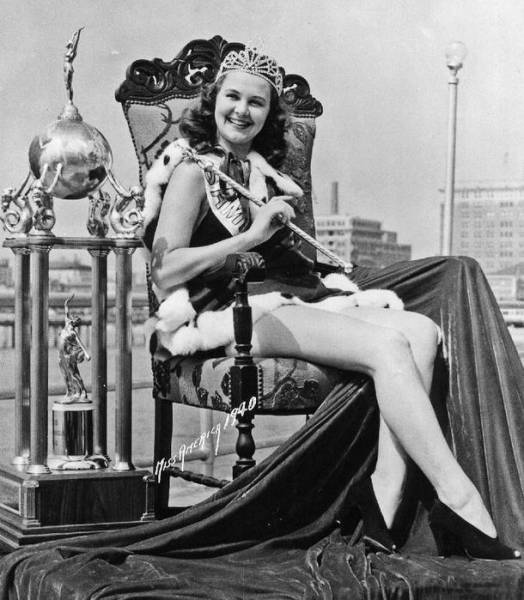
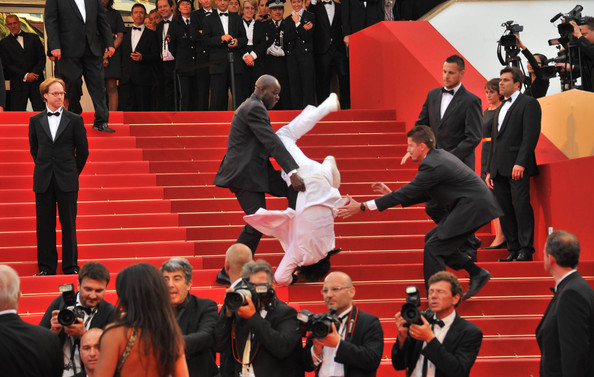

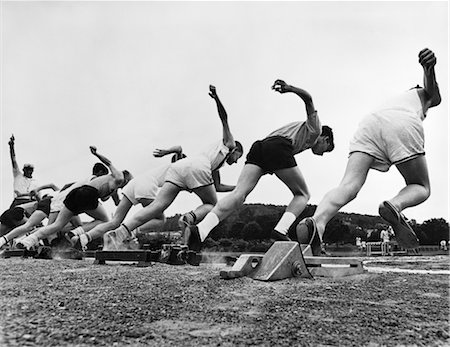

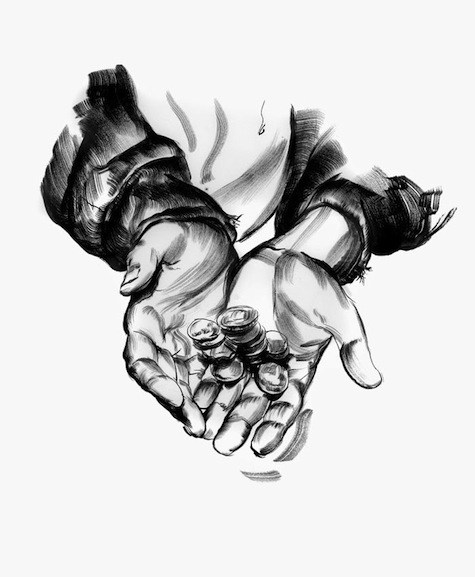
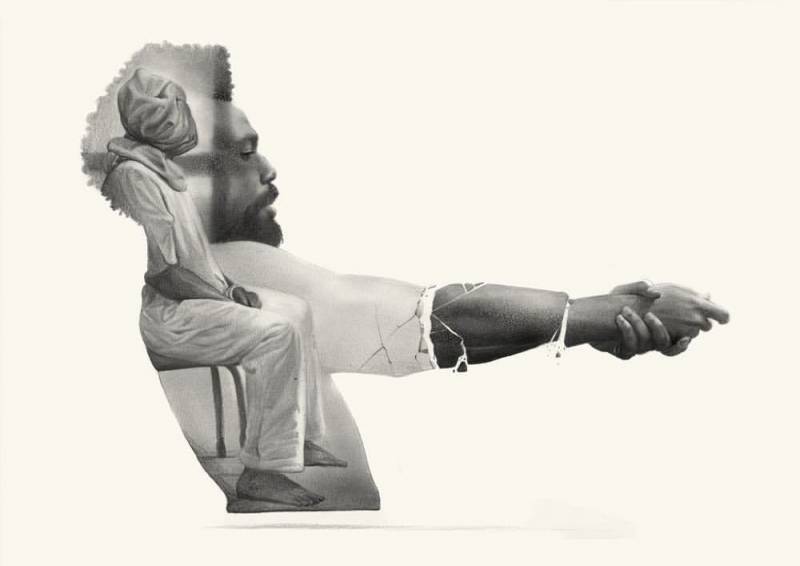
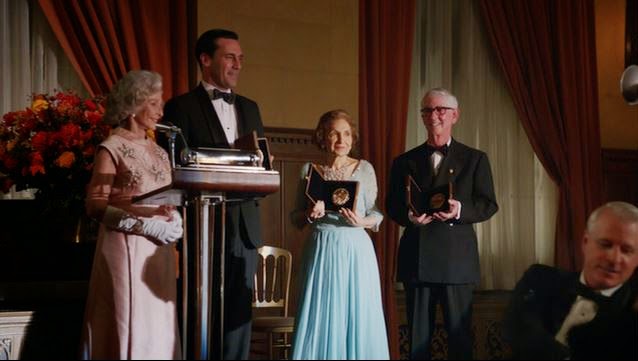
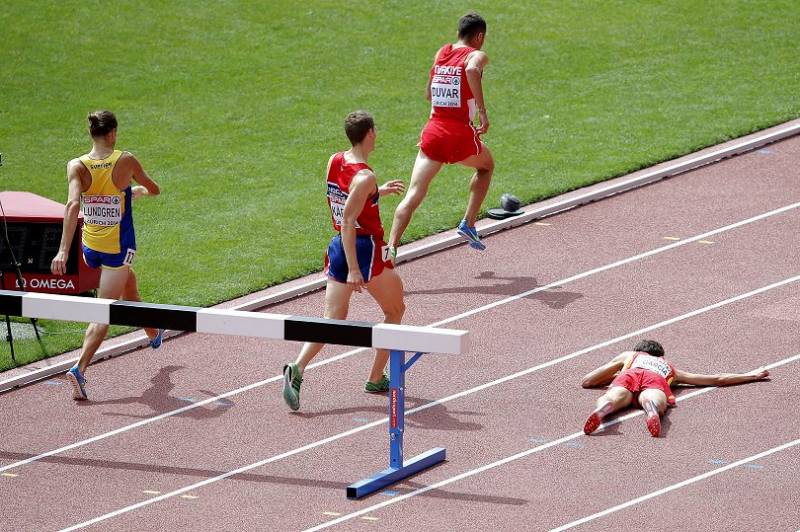


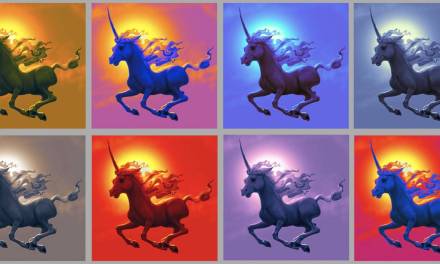


While its unfortunate that winning an award might not have an effect on our careers, I think the justification for these award is always an altruistic goal of helping artists involved. The sports thing, while I agree that it doesn’t translate very well, is obviously a very entertaining strategy to use. The thing that I have always found much more offensive then award shows is the fact that some paintings are worth millions while many artist have a hard time making a living. Some artists enter the psyche of rich people and the demand for their work becomes astronomical. I understand that any one person can only be aware of a small amount of artists, so I guess it makes sense. I still think its ultimately detrimental to the way a disinterested consumer, or anyone really, sees art and the occupation of artist. Plenty of people are vocal about how absurd the art world can be.
I think that maybe awards are created as a reflection of the way the world works. You could say that non artists need something more linear to help them understand something as subjective as art, but I don’t really believe that.
What I really wanted to bring up is what I think I know about classical music competitions. I’m not really involved in that stuff so this could all be bad information. What I’ve gathered is classical music competitions are typically for younger musicians who are just starting their careers or looking to break in. The few musicians that become professional soloists are somewhat “above” putting in the effort to compete. These competitions have much more serious benefits for winning, like winning will make your career. Also, judges are known for preferring certain interpretations of the music so competitors will adjust their performances in order to win.
Some dystopian version of what you’re describing right? Anyways, the more I think about it, its obvious to me that taking my skills as an artist and applying them to very specific goals is an admirable exercise. Whether its pleasing a client, trying to become a popular artist or being excellent enough to win an award. Yeah, there’s no real answer to how to do it and no sure route to take. For me, as a newbie artist, award winners are a tangible example to strive for thats slightly less daunting than striving to make artwork thats marketable.
There’s also art challenges for people who aren’t at the level of competing in award shows right? So if there was a way to game the system and make all the cliches you can find into one excellent piece, would that be so terrible. Haven’t we all had to adapt to equally absurd realities, while trying to be professionals. Actually maybe it would be pretty bad.